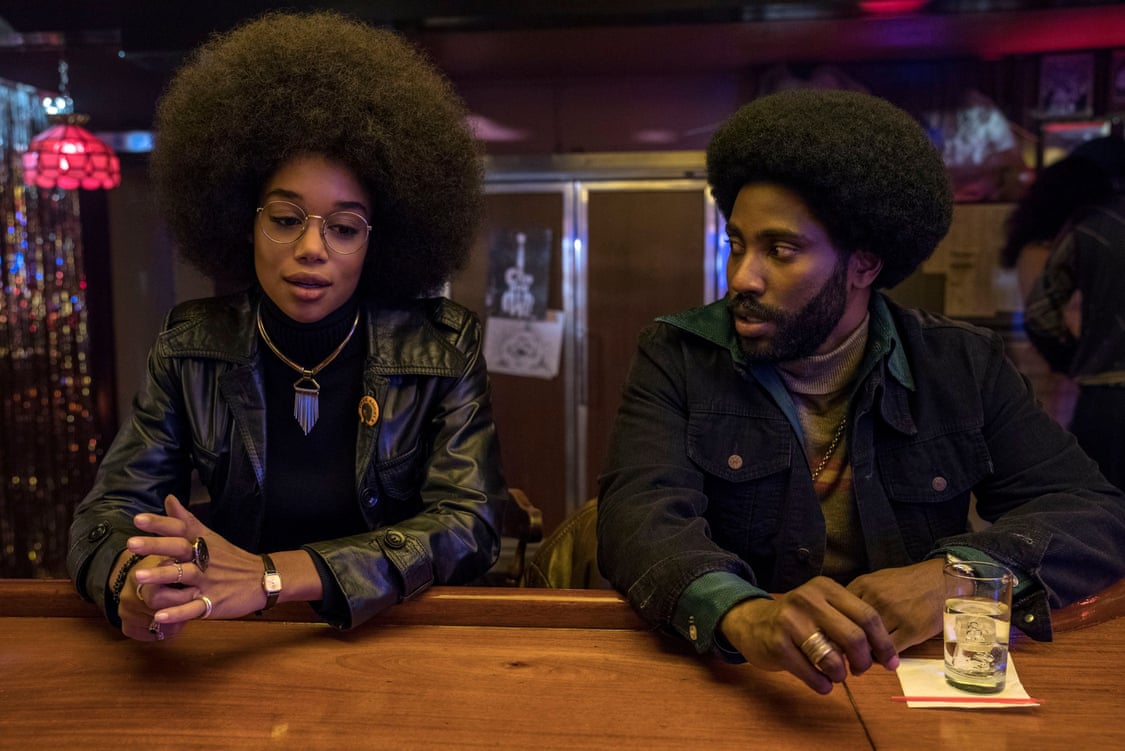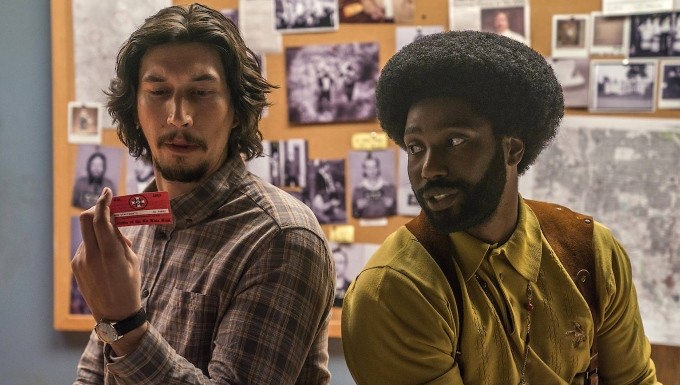cover © Focus Features LLC
 What happens when a young, idealistic Black cop wants to find a way to expose the workings of the Ku Klux Klan? He becomes a member of it. No, you haven’t misread – that is exactly what Ron Stallworth did for an undercover investigation in the early 1970s in Colorado Springs.
What happens when a young, idealistic Black cop wants to find a way to expose the workings of the Ku Klux Klan? He becomes a member of it. No, you haven’t misread – that is exactly what Ron Stallworth did for an undercover investigation in the early 1970s in Colorado Springs.
Working from the book “Black Klansman” by the law enforcement veteran Stallworth himself, Spike Lee has made a movie that convinces with its intriguing plot and political importance.
The movie starts with a job interview at the police station in which Ron Stallworth, played by John David Washington, has to convince the officers of his political suitability and ability to remain calm in racist situations, as he will be the first-ever African-American cop in Colorado Springs. Dissatisfied with his work at the file archive at the police station after having been accepted at the Colorado Springs Police Department, Stallworth requests to be admitted to undercover investigations and thus intelligence services. In his first such mission, he gathers information about the Black Panther Party at a meeting of Black activist Kwame Ture, where he gets to know Patrice Dumas (played by Laura Harrier), chairwoman of the Black Student Union. Starting to develop romantic feelings for her, but aware of her attitude toward the police, he deems it necessary to continue to hide his cop identity.

(c) Focus Features LLC
After this mission, a newspaper ad for the Ku Klux Klan attracts Stallworth’s attention. In a comic way, he decides to masquerade as a very racist and angry white man on the phone who is worried for the wellbeing of his “race”, and succeeds in winning the Klan’s confidence. However, to make sure not to be busted, he needs his colleague Flip Zimmerman (played by Adam Driver), who is a white-passing Jew, for personal encounters with the Klan members. Flip meets members of the Klan, some of which are mild-mannered and see in him a future leader, and others who distrust him and try to find out who he really is and what his intentions are. The mostly tense atmosphere that is created by the dangerous handling of weapons and racist speech is softened by the funny portrayal of most of the Klan members as not too bright and clumsy and the conversations between the Black cop behind the phone and grand wizard of the Klan David Duke (played by Topher Grace) who unburdens his heart to one whom he considers a loyal Klansman.

(c) Focus Features LLC
In a remarkable manner, Lee has managed to both make the audience laugh and worry at the same time because of the strange conversations that take place between Blacks and whites. The use of authentic material, however, e.g., photographs of tortured African-Americans and the integration of real people, such as Kwame Ture and David Duke, and happenings, like cases of police brutality in the past and the Charlottesville riots in the form of real video footage from 2017, are shocking, but in my opinion very necessary in order for this movie to work as a warning that the Ku Klux Klan and what they stand for has not perished and that rightist thinking still exists today.
As a PoC myself, I can say that this movie is empowering and unsettling at the same time, even if I experience racism in different contexts from the ones given here due to my being light-skinned. BlackKklansman reflects on the past and present dealings of the US with its cultural and racial conflicts and gives an insight into the psychology behind the white superiority complex that blatantly manifests itself in the Ku Klux Klan and its successors. At the same time, through the example of the Black Panther Party and the Black Student Union, the movie also emphasizes the importance of solidarity and a strong community that is forced to be capable of educating itself in order to promote and encourage its members and to call for equal rights.


